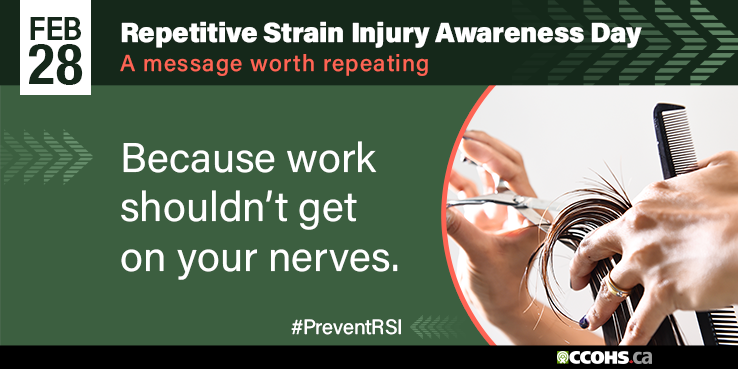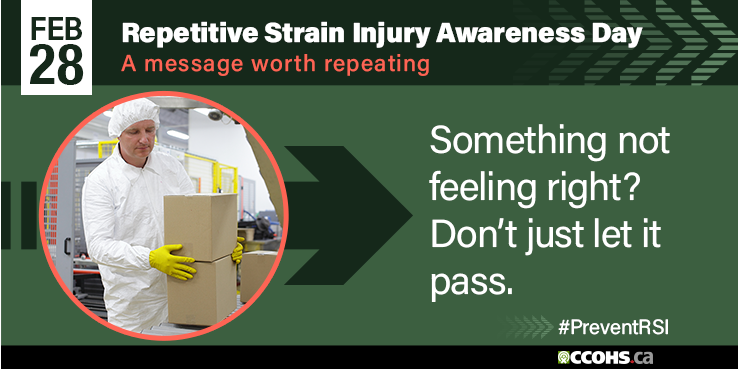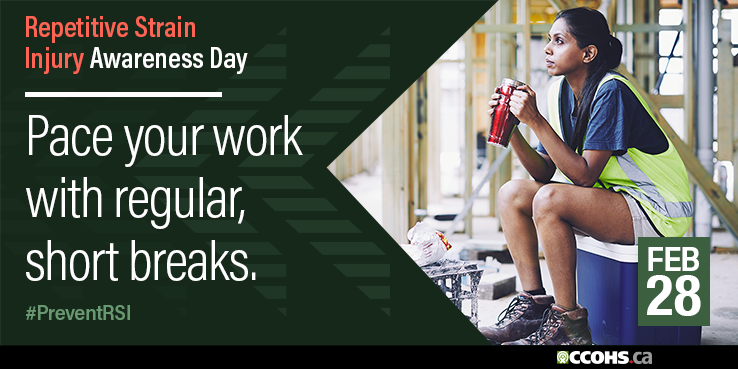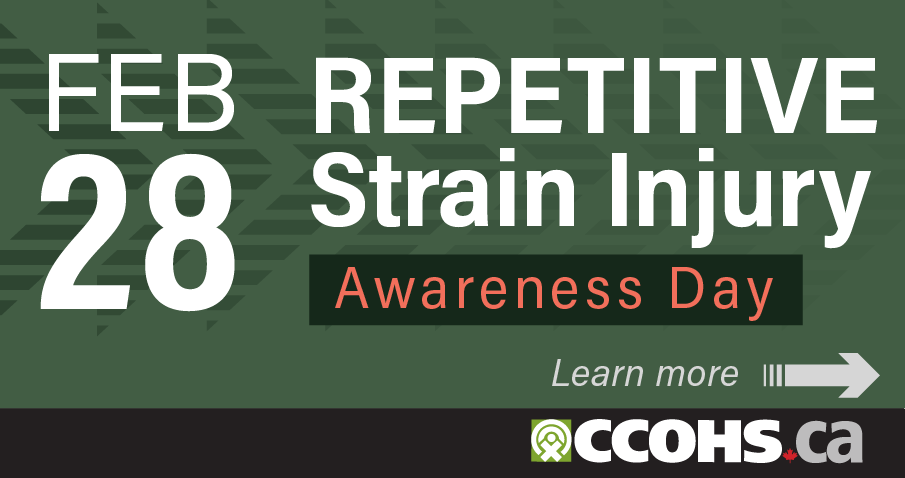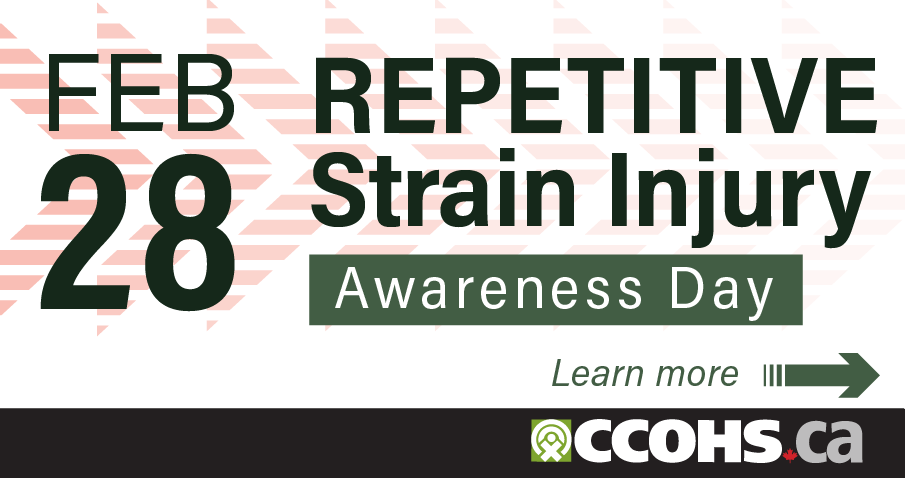hashtagPreventRSI
About repetitive strain injures
Who’s at risk?
What are the signs?
Preventing workplace injuries
Repetitive strain injuries are the most frequent type of lost-time injury and the single largest source of lost-time costs in Canada. Preventing them for occurring not only protects your workers, but also makes good business sense.



